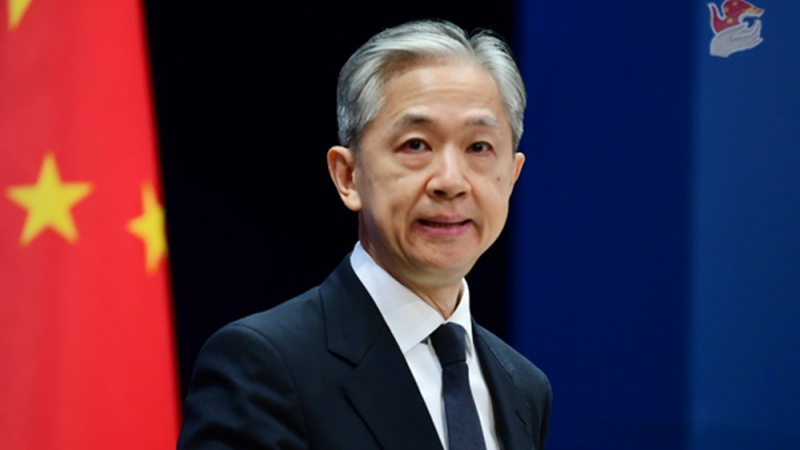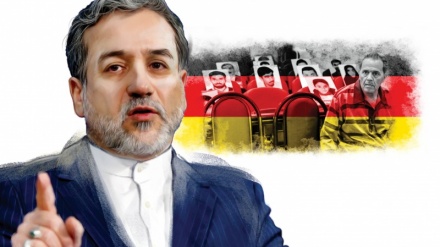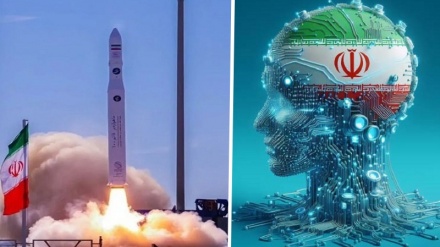China says to continue work on bringing JCPOA back on track
China's Foreign Ministry says the country will continue its efforts to restore the US-abandoned 2015 nuclear agreement "at an early date."
Speaking at a regular press conference on Friday, Foreign Ministry spokesman Wang Wenbin said the unilateral withdrawal of the United States from the nuclear deal, formally known as the Joint Comprehensive Plan of Action (JCPOA), and its so-called maximum pressure campaign against Iran are the cruxes of the current situation vis-à-vis the agreement.
"China will continue to communicate and coordinate with relevant parties to bring the JCPOA back on track at an early date," he said.
The official said Beijing would safeguard the "authority and efficacy" of the UN Security Council Resolution 2231, which endorses the JCPOA.
China will "promote the political and diplomatic resolution of the Iranian nuclear issue," the diplomat said.
"The most pressing task at hand is for all parties to resume full and effective implementation of the JCPOA through dialogue and negotiation, avoid taking any step that might escalate tensions or sharpen differences, and create conditions for diplomatic efforts."
He underscored the importance of interpreting "accurately" and implementing "in its entirety" the relevant provisions of Resolution 2231
"This bears on the authority and efficacy of UNSC resolutions," the spokesman said. He noted that Iran responded to the US maximum pressure policy with countermeasures.
Iran proved the peaceful nature of its nuclear program to the world by signing the JCPOA, commonly known as the Iran nuclear deal, with six world powers. However, Washington’s exit in May 2018 and its subsequent re-imposition of sanctions against Tehran left the future of the deal in limbo.
Multilateral diplomatic efforts to revive the JCPOA have been stalled since last August, with Iran blaming the United States for failing to guarantee that it will not leave the deal again.
Former US President Donald Trump pulled out of the UN-endorsed agreement in May 2018 and imposed what he called “maximum pressure” sanctions against Iran.
Iran has repeatedly announced that the JCPOA revival is possible if the US and the European signatories to the agreement have the will to reach that aim, warning that the opportunity will not last forever.
Chinese envoy calls for resuming JCPOA implementation
Meanwhile, China's deputy permanent representative to the United Nations Geng Shuang on Thursday called on relevant parties to the JCPOA to reach a consensus on resuming the full and effective implementation of the deal at an early date.
Speaking at the Security Council briefing, Geng said the former US administration was responsible for the current nuclear crisis as it unilaterally withdrew from the JCPOA and exerted extreme pressure on Iran.
The diplomat expressed regret that the JCPOA revival talks have stalled since August 2022 and called on the US and other relevant parties to seize the positive momentum, adopt a pragmatic approach and move in the same direction as Iran and promote the early return of the JCPOA to the right track.
He also urged Washington to lift all unilateral sanctions and "long-arm jurisdiction" measures against Tehran and any third party.
The US should stop the wrongful threat of the use of force and create favorable conditions for an early and full resumption of the JCPOA implementation.
According to the Chinese envoy, the "historic" resumption of diplomatic ties between Iran and Saudi Arabia through the talks in Beijing "has injected momentum and hope into a political settlement of the Iranian nuclear issue and other hotspot issues in the Middle East and comprehensive reconciliation of the region."
Geng said China was ready to work with all parties to uphold true multilateralism, implement the Global Security Initiative, and follow the path of common security in order to "build new security architecture" in West Asia and "achieve lasting peace and stability in the region."
He said China has always been committed to maintaining the effectiveness of the JCPOA and the authority of the Security Council resolutions. The official reiterated that Beijing has always participated in the political and diplomatic settlement of the Iranian nuclear issue with a constructive approach.
Back in February, Iranian President Ebrahim Raeisi and his Chinese counterpart Xi Jinping called for the full and effective implementation of the Iran nuclear deal by all sides and the removal of all US sanctions against Tehran in a verifiable manner.
In a joint statement issued at the end of Raeisi’s three-day state visit to Beijing, the Iranian and Chinese presidents reaffirmed that Washington's unilateral withdrawal from the JCPOA is the root cause of the current stalemate in the negotiations to revive the landmark accord.
MG



